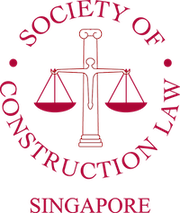Articles
- Details
- Hits: 505
Programming and Delay (Article 1 of 3): Getting to an Accepted Programme
Introduction
When projects are delayed and go into dispute, they are often referred to delay experts to provide an opinion on the cause and the impact of the delay events. The first challenge for these experts is to determine the method of delay analysis they will adopt. Many of these methods are described in the Society of Construction Law (United Kingdom) Delay and Disruption Protocol. The selection of the most appropriate method is highly dependent on the information that is available to the delay expert, not to mention the expert’s own preference.
Arguably it is the lack of progress and performance information in the first place that has contributed to the actions leading to a dispute. To avoid this, the focus, when drafting contracts and agreements, should be to ensure that the appropriate detail of reliable information is provided before and during the delivery of the project.
This article is the first in a series of three articles, that cover:
- The importance of getting to an accepted programme;
- Monitoring project progress against the accepted programme; and
- What to do when delay claims cannot be resolved.
Programme Submission
Most standard contracts, including SIA, PSSCOC, AS, NEC and FIDIC, require contractors to prepare and submit a ‘programme’, also known as the ‘program’ or ‘schedule’. The programme is a document that shows the sequence and duration of the works to be undertaken and is often provided in the form of a Gantt or bar chart.
The programme is a critical project document as it is used to inform the project team and clients on the intended methodology to deliver the works. It is used to coordinate and monitor the progress and performance of the works and to assess the impact of delay events on the ability to achieve completion.
The challenge for most parties is that the standard terms and conditions of a contract are usually silent on the format and content of the programme. This makes sense as these standard contracts need to be ambiguous enough to be adopted for a wide range of construction projects. The lack of description on the required format and content means that the responsibility of approval of the programme is reliant on the client’s project management team to determine if the programme is suitable for use.
Programme Issues
Projects are complex, and as a result, the programme can also be complex. Without the proper training and experience, it is easy to overlook the issues in the programme provided by the contractor and accept it at face value.
Some of the issues that we often observe when reviewing programmes are misalignment with the scope of works, inappropriate sequencing of works and insufficient time allowance for approvals, long lead items, site establishment, the settling or curing of works and commissioning.
Often, we find the programme does not identify the dependencies between the works to be undertaken, activity start and finish dates are missing and the critical path to completion is not clearly shown. The lack of this information presents a challenge when assessing the impact of a delay event and how that event may, or may not, have impacted the contractor’s ability to achieve completion of the works.
The lack of programme information not only makes it challenging to assess the impact of delay events but can mean that reports on project progress and performance could be inaccurately represented and project risk not entirely appreciated.
Getting to an Accepted Programme
Being clearer in contract documents, usually through a scope of work or project requirements document, on the format and content of the programme is a key step to resolving ambiguity.
As a minimum, the project requirements should state that the programme needs to reflect the scope of work, including but not limited to all off-site, enabling and temporary works. The programme should also identify the start and finish date for each activity, the dependencies between all activities and the critical path to completion.
For more complex projects, clients should also consider requesting a basis of the programme document that describes the underlying methodology and key allowances and assumptions relied upon to develop the programme and a native version of the programme file for review.
There are ‘tricks’ that contractors can build into programmes to obscure the details within the programme. Where clients are concerned that this may be happening, they should consider engaging an experienced planner or delay expert to review the programme and provide a view on whether it is reasonable or not.
Requesting the additional information and seeking an independent review of the programme, should provide enough information to the project team to decide if the programme is acceptable or not.
The next article in this series will look at how progress is monitored against the accepted programme, the issues that commonly arise, and what can be done to guard against these.
Contributed by:
Grant Axman-Friend - Managing Director, Core Project Advisory


